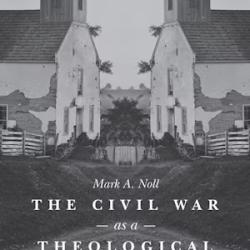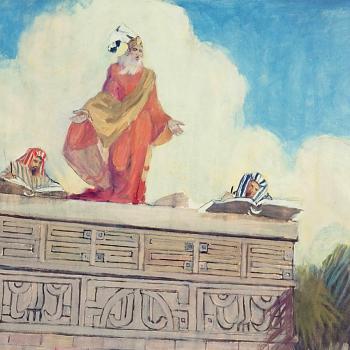The Risen Life
Most people do just what Martha did—we underestimate the Resurrection. We relegate it to the future. And when we do, we miss out on so much purpose and power available to us right here right now. Of course, the Resurrection is an historical, and a future, event, but it is so much more. The Apostle Paul lived his life every day in light of Resurrection power and taught us how to do so in Romans 6, 7 and 8.
According to Paul, the Resurrection is a preview of coming attractions. The Resurrection of Jesus is a preview of what every Christian will one day experience. Jesus' resurrection from the dead gives us great hope and removes the fear of death. "But the fact is that Christ has been raised from the dead. He has become the first of a great harvest of those who will be raised to life again" (1 Cor. 15:20. NLT).
"Now we live with a wonderful expectation because Jesus Christ rose again from the dead" (1 Pet. 1:3 NLT).
The Resurrection is also a power over present distractions. Sin is a distraction. Have you noticed? The worst thing sin does is that it distracts us from the will of God, the face of God, and the presence of God. It robs us of our true identity. It breaks our focus on Jesus in life.
When we go down in the waters of baptism, we identify with Jesus in his death for our sins. We die to our sins. This one-time physical experience of baptism is intended to be an everyday mindset in the life of the Christian: "For we died and were buried with Christ by baptism. And just as Christ was raised from the dead by the glorious power of the Father, now we also may live new lives" (Rom. 6:4 NLT). "For when we died with Christ we were set free from the power of sin" (Rom. 6:7 NLT).
The Resurrection is also a plan for Spirit-led actions. When we rise up out of the waters of baptism, we identify with Jesus' rising above the power of sin and death and living life in the power of the Holy Spirit. It is an experience and a perspective for life: "[N]ow we have been released from the law, for we died with Christ, and we are no longer captive to its power. Now we can really serve God, not in the old way by obeying the letter of the law, but in the new way, by the Spirit" (Rom. 7:6 NLT).
Imagine that! The same Spirit that raised Jesus from the dead can get you up and out of bed in the morning, can fill your soul with a sense of purpose, and can fuel you with energy to serve God in life. But in order to walk in that Risen Life it requires that we, first of all, receive that life by asking God for it. And, secondly, it involves a reckoning. We must reckon, or consider, ourselves as dead to sin and alive to God.
Beyond the Grave
Succeeding at giving her marriage another shot was something that few people in Maggie McKinney's life had any hope for. Deep into the Personal Gethsemane of her separation, she found herself caught amidst a mixture of conflicting thoughts and emotions. The day her husband came back into her life, she was contemplating the "freedom" she was about to experience, the trips she would take and the projects she could undertake. The divorce papers were expected to arrive any day and she was becoming more and more comfortable with the idea of being single again.
While sweeping up cat litter in the basement, Maggie heard a familiar sound as a car pulled up in the driveway. Without a word, her husband slowly entered the basement and invaded the silence as he walked over and gently hugged his wife. He came this time not with papers, but with a question: "Could we try again?"
In a millisecond all kinds of questions flooded Maggie's mind: Should she toss two decades of marriage in the trash along with the cat litter? Or should they give it another go? Did she want to have to answer to someone else again? Did she want all the cooking and laundry that went with it? The meals? The sharing? What about the complaints she would hear about her shortcomings? And yet, what about the good times they had known together before everything went south?
Maggie was not so sure. Yes, for better or for worse, vows had been made. She had made a promise. She wondered about the kids, however. Wouldn't they be better off with both parents at home? Still, that seemed a lame excuse for moving back in together. As she walked the valley of decision, Maggie's hopes were paper-thin. Still she felt more positive about the idea of giving it a try again together than going it alone. Honestly, she felt the risk of either decision. Reenter the marriage and it might blow up in her face; leave it and she might regret having given up so soon.
And how did Maggie's long Saturday end? She describes it this way:
Our separation taught us a little about what is and what isn't important. Forgiveness, we've learned, is essential. And we've avoided (at least so far) the anger and bitterness that can come from divorce.
Our marriage is far from perfect . . . but the marriage is better than it was before. We walk nearly every day, eat out more frequently, talk more. Both of us have learned to pay more attention to each other than we did in the past.
The minister wasn't wrong. At the time I talked to him the marriage was dead. But hasn't he heard about resurrection?
This article is Part Three of a three-part series. See Robert Crosby's column page for more.





